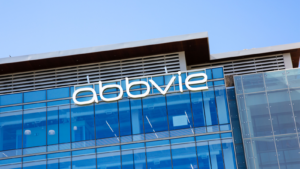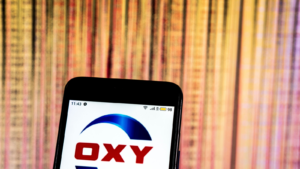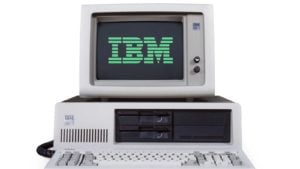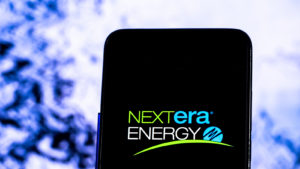Investing in dividend stocks is generally reserved for those who prefer steady returns and low volatility over the thrill of rapid potential gains. Investors saw tech stocks explode in 2023 as artificial intelligence emerged. In 2024, investors expect further growth but are also hesitant.
Economists believe that a soft landing is the most likely scenario. Let’s all hope that that’s the case. However, it also makes sense to bolster your portfolio simultaneously with the safety of dividend stocks.
As with all others, February is a great month to invest in dividend stocks. Investors seeking income and stability should consider these buy-and-hold dividend stocks during the month and beyond.
Dividend Stocks: AbbVie (ABBV)

AbbVie’s (NYSE:ABBV) The story regarding its blockbuster drug Humira has been told many times. It’s worth telling you again because it shows precisely why investors should consider the pharmaceutical stock, which offers an excellent dividend.
Humira has been a massive success as one of the greatest-selling pharmaceuticals ever. However, It also lost patent exclusivity in 2023. Biosimilar competition is now allowed, and Humira’s sales are rapidly declining. This outcome has long been expected and is not surprising to anyone who follows the company. The question is really about what AbbVie can do as Humira declines.
The answer is that the company is finding sales from elsewhere within the same immunology class of drugs. Rinvoq and Skyrizi grew at rates above 50% in the most recent quarter. That’s serving to soften the blow of Humira’s decline. Humira is an outside contributor to the company’s success, but sales only declined by 6% overall.
The company has a lot of growth potential in Rinvoq and Skyrizi and Recent acquisitions. Investors who get on board with the company’s strategy will receive a dividend yielding 3.7%, which was last reduced in 1972.
Occidental Petroleum (OXY)

Occidental Petroleum (NYSE:OXY) stock will not attract many investors based on the strength of its dividend yield alone. That yield is a very modest 1.2% at the moment. However, what it lacks in raw income power, it makes up for in many other ways.
Primarily, Occidental Petroleum is a strong contrarian play for those who believe in the Warren Buffett school of investing. His Berkshire Hathaway currently owns 34% of the equity in Occidental Petroleum. His firm has been buying the company over the last several quarters, and he is particularly big on the company because of its balance sheet and macroeconomic factors. Buffett and Berkshire Hathaway believe that instability in the Middle East will lead to a resurgence in oil prices.
The company has been buying OXY shares rapidly, particularly when they fall below the $60 threshold. The energy sector was the weakest performer in 2023 after 2022, which saw it as the strongest sector. The story of 2024 has yet to be told, but geopolitical instability will play a large role in the sector’s performance this year.
McDonald’s (MCD)

McDonald’s (NYSE:MCD) feels like a very solid stock to invest in now. While the company arguably has a solid reputation, a lot of growth is coming. More accurately, McDonald’s is already growing quite rapidly.
The company’s recent Financial results tell a simple story. The company’s Top Line is growing at roughly 10% within the United States and even faster internationally. McDonald’s is not satisfied and continues to seek much greater growth.
The company aims to grow its restaurant count to 50,000 by 2027. If it is successful, that will be the fastest period of growth in its history. Meanwhile, McDonald’s is also approaching growth in new areas—namely, high-margin drinks sold by competitors like Starbucks (NASDAQ:SBUX).
Its recent brand extension with CosMc’s is receiving an early strong reception. There’s a lot to like about the company’s growth strategy, even more so when considering its 2.3% dividend.
IBM (IBM)

IBM (NYSE:IBM) stock is humming along primarily due to optimism around artificial intelligence. 2024 promises to be another strong year for the emerging AI sector. IBM believes that growth will continue to be strong, which could catalyze its shares higher.
The company released earnings a few weeks ago, which were particularly strong. Free cash flows were well above expectations, reaching $11.2 billion. Further, margins reached their highest levels since 1999.
Investors will pay particular attention to continued growth from IBM’s artificial intelligence offerings. Its book of business for generative artificial intelligence doubled between Q3 and Q4. The company is relying on some of that AI prowess to catalyze a reduction in the workforce. As a result, IBM is finding greater efficiencies and has a decreased need for human labor.
It’s not so great if you’re an IBM employee, but it’s very welcome for investors as labor costs are commonly the greatest expense overall.
Medtronic (MDT)

Medtronic (NYSE:MDT) is among the better-known Healthcare stocks overall. The healthcare sector is noted for its reliability and lack of volatility. The reason is very simple: Consumers utilize healthcare at relatively steady rates that don’t correlate with cyclical economic fluctuations.
In short, Medtronic is predictable. The company gives guidance, and it’s not common for it to change it. Yet, Medtronic did exactly that when it reported second-quarter results in late November. Medtronic increased its fiscal year 2024 revenue growth and EPS guidance, a strong sign overall.
Part of the optimism derives from product approvals. Medtronic received FDA approval for several devices related to its cardiac business.
Overall, Medtronic is an excellent example of what a dividend stock should be. The company last reduced the dividend in 1978, implying extreme reliability. Moreover, Medtronic has grown its dividend by more than 8% over the last five years. Strong dividend growth is a particularly important sign for investors, and Medtronic has exactly that.
Kenvue (KVUE)

Kenvue (NYSE:KVUE) is the relatively new spin-off of Johnson & Johnson’s (NYSE:JNJ) consumer healthcare division. The stock currently trades for around $21, below its IPO of $22.
That IPO occurred back in May of 2023, and Kenvue currently pays a dividend yielding 3.7%, making it a young, optimistic investment. Kenvue was spun off from Johnson & Johnson due to controversies surrounding its products’ health. It’s fair to argue that Johnson & Johnson sought to get rid of its consumer Healthcare brands because they simply didn’t do as much for its bottom line as its medical device sector.
The company now has a chance to prove that its consumer Healthcare brands can stand alone as a stock and generate returns. The point here is that its shares are currently quite cheap and include a high-yield dividend approaching 4%. Analysts don’t expect that those shares will decline much, if at all. Instead, they believe they could rise by as much as 50%. Even if they don’t, investors will have a nice healthy chunk of dividend income in the worst-case scenario.
NextEra Energy (NEE)

NextEra Energy (NYSE:NEE) stock, like Kenvue, includes a dividend that yields more than 3%. And like Kenvue, NextEra Energy has seen better days.
The company is one of the more unique investments in energy. It is part utility firm and part renewable energy firm, both of which are the largest respective companies in the world in their sector. The utilities side of the business is called Florida Power and Light. It had a particularly strong fourth quarter, with net income rising to $1.146 billion from $763 million a year earlier.
However, its renewable resource business did not fare as well. Net income from NextEra Energy Resources fell from $995 million to $893 million during Q4.
NextEra Energy benefits from the strength of its utility business, but ultimately, it remains at the mercy of greater narratives around green energy. 2024 should be a much better year for the solar and wind projects in which the company is particularly well invested.
On the date of publication, Alex Sirois did not have (either directly or indirectly) any positions in the securities mentioned in this article. The opinions expressed in this article are those of the writer, subject to the InvestorPlace.com Publishing Guidelines.
